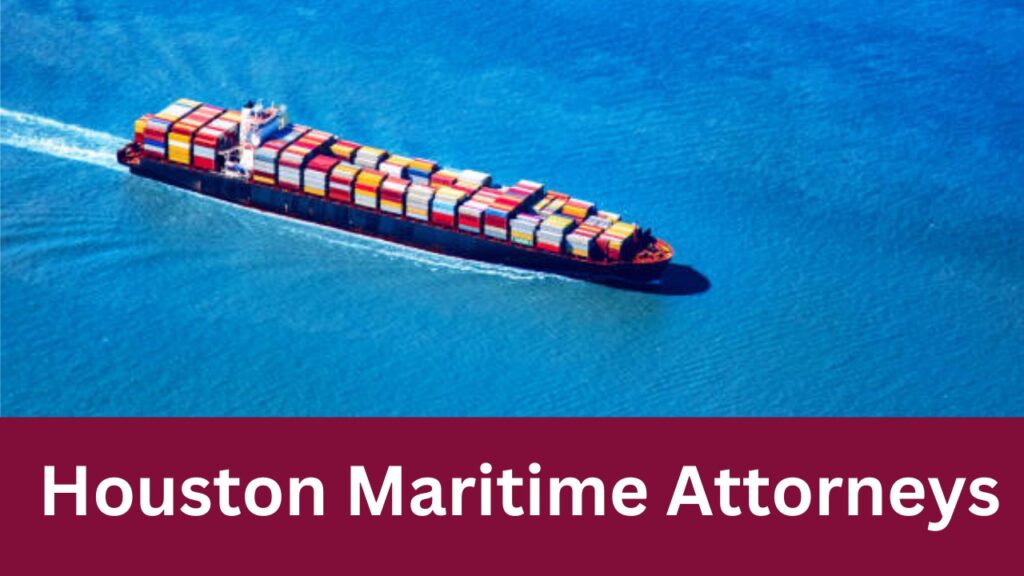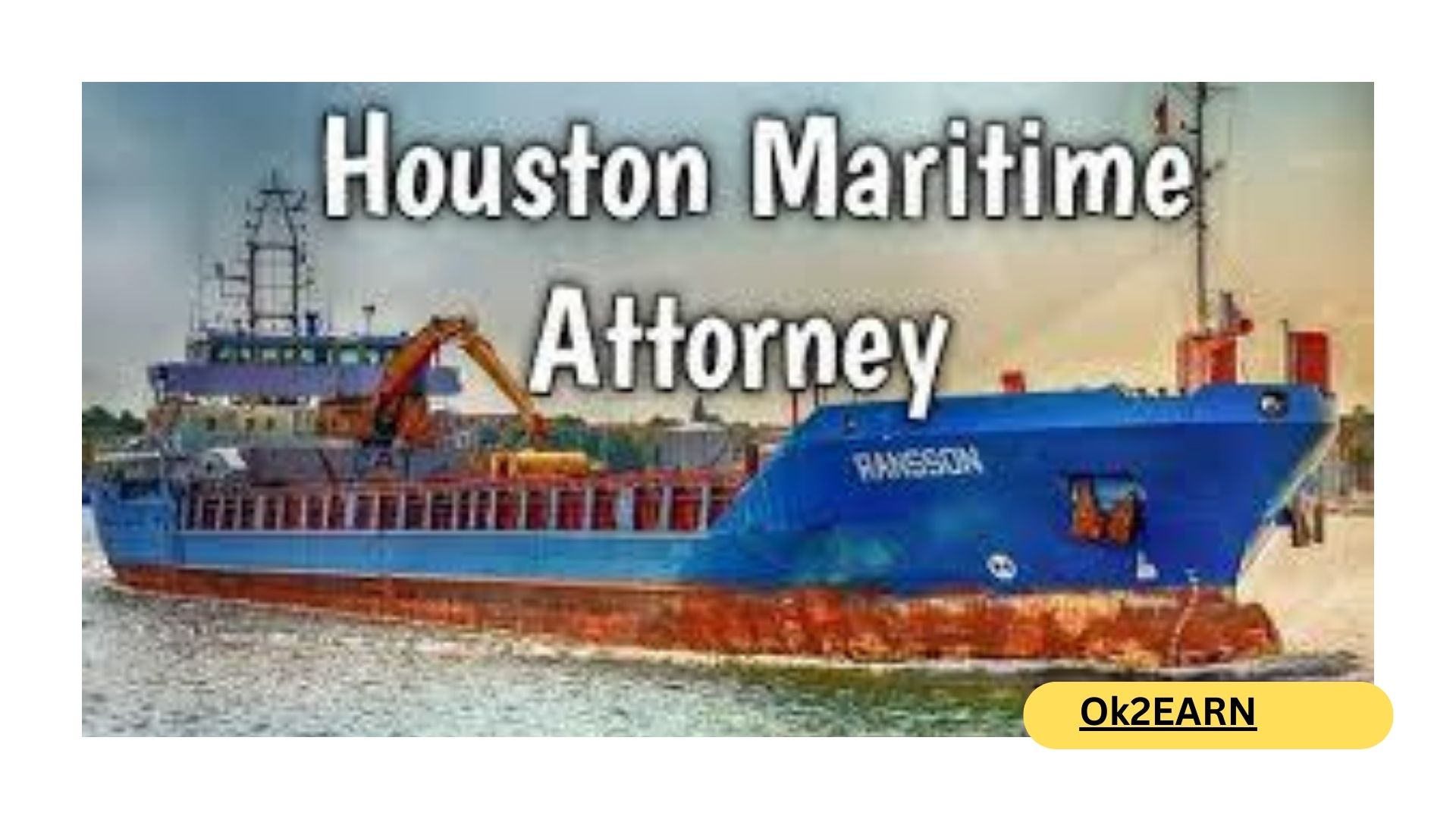Houston Maritime Attorney: Your Guide to Navigating Maritime Law. When it comes to maritime law, complexities abound. Whether you’re a seafarer, a dockworker, or a shipping company owner, understanding your rights and responsibilities is crucial. In Houston, where the maritime industry is thriving, having a knowledgeable Houston maritime attorney by your side can make all the difference. This article will delve into the intricacies of maritime law, why you need a specialized attorney, and how to find the right one for your needs.
What Is Maritime Law?
Maritime law, also known as admiralty law, governs activities on navigable waters. This area of law encompasses a wide range of topics, including shipping, navigation, and marine commerce, as well as injuries and accidents occurring at sea. Here are some key aspects:
- Jurisdiction: Maritime law applies to all navigable waters, which include oceans, rivers, and lakes that are used for commerce.
- Types of Cases: Cases can range from personal injury claims under the Jones Act to cargo disputes and environmental issues.
- Federal vs. State Law: While many maritime laws are federal, state laws can also apply, complicating legal matters.
Why You Need a Houston Maritime Attorney
Navigating the intricacies of maritime law can be overwhelming, especially if you’re unfamiliar with its nuances. A Houston maritime attorney specializes in this field, ensuring you have expert guidance. Here’s why hiring one is essential:
1. Expertise in Maritime Law
Maritime law is a specialized field. An attorney with experience in this area understands the specific regulations and laws that govern maritime activities. This expertise can be crucial in building a strong case.
2. Handling Complex Cases
Maritime cases often involve multiple jurisdictions and complex legal principles. A skilled attorney can help you navigate these complexities, whether you’re dealing with personal injury claims, shipping disputes, or regulatory compliance issues.
3. Protecting Your Rights
Your rights as a worker or business owner in the maritime industry can be vulnerable. An attorney can help protect your interests, ensuring you receive fair compensation and representation in any legal proceedings.
4. Negotiating Settlements
Many maritime cases can be resolved outside of court. An experienced attorney can negotiate on your behalf to secure a favorable settlement, saving you time, money, and stress.
5. Representation in Court
If your case does go to trial, having a seasoned maritime attorney is invaluable. They can present your case effectively, utilizing their knowledge of maritime law to advocate for your rights.
Types of Cases Handled by Houston Maritime Attorneys
Houston maritime attorneys handle a variety of cases, each with its own set of challenges. Here are some common types of cases they deal with:
Personal Injury Claims
Injuries sustained while working on a vessel or offshore platform can lead to complex legal battles. The Jones Act provides protections for injured maritime workers, allowing them to seek compensation for injuries caused by negligence. An experienced attorney can help navigate these claims, ensuring you receive the benefits you deserve.
Shipping Disputes
Disputes between shipping companies, cargo owners, and insurers are common. Issues may arise over cargo damage, shipping delays, or breaches of contract. A maritime attorney can represent your interests in these disputes, helping to negotiate settlements or litigate in court.
Vessel Collisions
Accidents involving vessels can result in significant property damage and personal injury. Determining liability in these cases can be complicated. Often requiring an understanding of both maritime law and navigation rules. A maritime attorney can investigate the accident and build a case to recover damages.
Maritime Workers’ Compensation
An attorney can assist in filing claims for medical expenses, lost wages, and rehabilitation costs, ensuring you receive the appropriate compensation for your injuries.
Environmental Law
Environmental issues, such as oil spills and pollution, often fall under maritime law. Attorneys can assist with compliance issues, regulatory matters, and litigation related to environmental damage caused by maritime activities.
How to Choose the Right Houston Maritime Attorney
Finding the right attorney can feel daunting, especially given the complexities of maritime law. Here are some steps to guide your selection process:
1. Research Experience and Credentials
Look for an attorney with a solid background in maritime law. Check their credentials, experience, and any special certifications that demonstrate their expertise in this field.

2. Review Client Testimonials
Reading reviews and testimonials from past clients can provide insight into the attorney’s skills and effectiveness. Look for comments about their communication style, success rates, and overall satisfaction.
3. Schedule Consultations
Many attorneys offer free initial consultations. Use this opportunity to discuss your case and gauge whether the attorney is a good fit for your needs. Pay attention to how they communicate and whether they take the time to understand your situation.
4. Evaluate Their Communication Skills
Clear communication is vital in legal matters. Ensure the attorney explains legal concepts in a way you can understand and is responsive to your questions and concerns.
5. Consider Their Approach to Cases
Every attorney has a unique approach to handling cases. Some may focus more on negotiation, while others are prepared to litigate. Choose an attorney whose approach aligns with your needs and preferences.
FAQs about Houston Maritime Attorneys
1. What types of cases do maritime attorneys handle?
Maritime attorneys handle a range of cases, including personal injury claims, shipping disputes, vessel collisions, maritime workers’ compensation, and environmental law issues.
2. How does the Jones Act protect maritime workers?
The Jones Act allows injured maritime workers to seek compensation for injuries caused by their employer’s negligence. This law provides significant protections for seafarers, enabling them to pursue claims against their employers for damages.
3. What should I do if I am injured at sea?
If you are injured at sea, seek medical attention immediately and report the incident to your employer. It is also advisable to consult a maritime attorney to discuss your rights and potential claims.
4. How do I choose the right maritime attorney?
Consider the attorney’s experience, credentials, client testimonials, and communication skills. Schedule consultations to gauge their approach to cases and determine if they are a good fit for your needs.
5. Can maritime law cases be resolved outside of court?
Yes, many maritime law cases can be settled through negotiation before reaching court. An experienced attorney can help facilitate these discussions to achieve a favorable outcome.
Conclusion
In the bustling maritime industry of Houston, understanding your rights and navigating the complexities of maritime law is essential. A specialized Houston maritime attorney can provide the expertise and guidance necessary to protect your interests, whether you’re facing a personal injury claim, a shipping dispute, or regulatory compliance issues. By selecting the right attorney, you can ensure that you have the support you need to navigate these challenges successfully. Don’t hesitate to reach out for a consultation and take the first step toward securing your rights in the maritime world.
